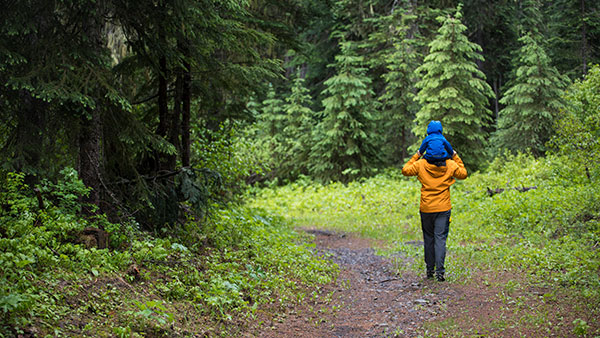Covid-19 has changed the world of work for many; more home working while those with precarious work conditions and on zero hours contract have bourn the brunt.
John Evans FRSA imagines where this may take us in the future and asks whether Fellows can help shape a future of work.
It is year Zero. Twenty years have passed since waves of ever-mutating virus started sweeping around the planet, always one step ahead of us. Now, at last, we can begin again; science has out-evolved viruses. Once again we are free to meet and travel but few remember the world as it was. Young families watch old documentaries about millions of people swarming into cities to work in chicken-coup, skyscraper offices. Over-crowded, noisy, polluting transport took people to work in places that prioritised productivity over wellbeing; they spent a couple of hours a day just moving around. Grandparents talk nostalgically about ‘office life’; its creative buzz, the camaraderie, rich, diverse, work-based society, and yet few would return to it, if they had the chance. However, capital seized the opportunity to dump its expensive real estate and crippling overheads when first-generation Covid-19 turned the old way of working into a deathtrap. There was no going back.

Of course, the way we now work is not perfect but at least we have more control over our working lives. So much is different now that everything is connected. Whether you work at home or in a ‘clean hub’ nearby, things are made to suit you. Not much excuse to be ignorant, bored or isolated. It was not always like this. When home-working started people said it was quite a struggle. Change is usually difficult; rupture is something else.
Our politicians say, ‘never again’ but just in case they are being a bit optimistic, we might ask those who survived the 2020s to give us some clues. Tap into their experience so that when the next ‘world-buster’ arrives we can side-step parts of society having to swim or sink, learning by trial and error. True, those who were better off, better educated and better connected did OK. Did the rest need to struggle that hard, suffer that much? And there, fellow Fellows, is the challenge.
Many of us will have ducked the bullet. Did we see it coming? Maybe, maybe not but we were perhaps better prepared. Among us are some who personally have known poverty, anxiety, confusion, ignorance and worse. We can empathise but can we help?
What are the changes we need to make? The business press is full of stories about organisations that welcome game-changing opportunities afforded by current disruption to established ways of working. Since the 1970s emergence of information technologies, mobile telephony and the internet have promised transformational, revolutionary change but under-delivered. Organisational and societal inertia have throttled it down to an incremental trickle. However, since March 2020 medicine, transport, commerce and much else have had to dump their taboos and entrenched given wisdoms to do things differently. Needs must.
Do people resist? Are they eager to get back to their Monday to Friday trek into work? According to a YouGov poll published in September 2020, over half (55%) of those who had never worked from home before lockdown, wanted to continue to do so. However, that is not to say that everything is rosy and that people do not miss meeting over the photocopier. Managing people remotely is not easy, nor is building co-operative, creative milieu. Most of us have been dumped unceremoniously in the deep-end and have just tried to adapt what we did in the office to our home environment, with its quite different, structure and social dynamics.
Imagine having your home-office audited by a team of health and safety inspectors, efficiency experts, IT specialists, occupational and environment advisers, somebody from human resources and security people. You might be asked for your Office Manual, Standard Operating Procedures, Stock Control Records, the Post and Goods-Inwards book and much more. Not yet perhaps but it may be just a matter of time and you had better be ready. The alternative is the Wild West; the gig economy already lured into insecure work those with least choice, replete with risk and uncertainty. Do we want more of that and, if not, who will stand against it?
In 2040 when our grandchildren ask, ‘what did you do in the war against the plague’ how will you reply? Doubtless among the RSA Fellowship are medical scientists who will help to find our new future. But how about the rest of us? What are we going to do? In aviation there is an old adage: aviate, navigate, communicate. Get (and stay) out of trouble, know where you are going, and let others know what you are doing. None of that is easy without a decent map.
Isn’t the challenge for us to create a new map for the new world of work? Why not draw on our huge, diverse pool of talent to map-out what we know about it. Provide those who need to find their way with some certainties and landmarks. We who have already found the pitfalls, swamps and dead ends can help others to avoid them. We might only know our own patch but it all helps build the bigger picture. Who wants to join in?
Here is one idea of what we can do. A map is a picture, structure, mosaic of tiny details, pulled together into a coherent whole that others can find their way about. We need to think big but the ideas may be small. For example, work comfortably. Get a straight-backed chair and sit with your feet flat on the floor and keep your back straight. Put a pile of books under your laptop to raise the top of it to your eye-line.
Given the huge challenges we face, am I serious? You bet I am. Maybe I could suggest a lot more things too but we need to be happy to start there. It is practical and works, you can do it right now and it costs nothing. Recently, I suggested this piece of workplace redesign to the CEO of an organisation in healthcare who was unaware of it. Her back aches less.
We can, each of us, contribute discrete items of information about how to work effectively from home. We are each responsible for their accuracy. Not essays about a better brighter world but short, practical bits of information, written to be as accessible and simple as possible. Those with talent for pulling together all those gems and structuring them could offer to do that. This is not (yet) an oven-ready project but with your support and input it could soon become one.
Meanwhile, I want to engage RSA Fellows in developing a template for good home working with the aim of sharing ideas and engaging with a range of stakeholders including employers across sectors, unions and policymakers. This would include specific good practice in relation to workers’ health, wellbeing and safety, the role of technology, as well as broader social dimensions such as work/life boundaries, isolation and how we prepare young people for the world of work. However, the aim is not to create a committee of the great and good, or to produce a definitive ‘best way’ but rather to develop an easy-to-use resource that puts users in-charge, letting them choose what might work for them.
John Evans trained as engineer, with what is now British Telecom, later joining telecoms multinational, ITT where he focused on quality improvement. Having re-trained as a psychologist and co-founded the HEB partnership, John has worked on human reliability with a wide range of industries around the world. Please contact 2john@human-error.com with your ideas.
Related articles
-
Covid-19 and its enduring impact on the industrial climate
Comment
Stuart Morgan FRSA Deborah Rees FRSA
Over the last year we witnessed some great responses from employers as well as bad ones. Deborah Rees FRSA and Stuart Morgan FRSA discuss how best to go forward.
-
Remote working in the new world of work
Comment
Dr Neil Thompson FRSA
Dr Neil Thompson FRSA explores some of the advantages and pitfalls of working from home.
-
The 21st century employer and mental health
Comment
Nigel Taylor FRSA
Nigel Taylor FRSA on why both the public and private sectors need to invest in good mental health




Be the first to write a comment
Comments
Please login to post a comment or reply
Don't have an account? Click here to register.